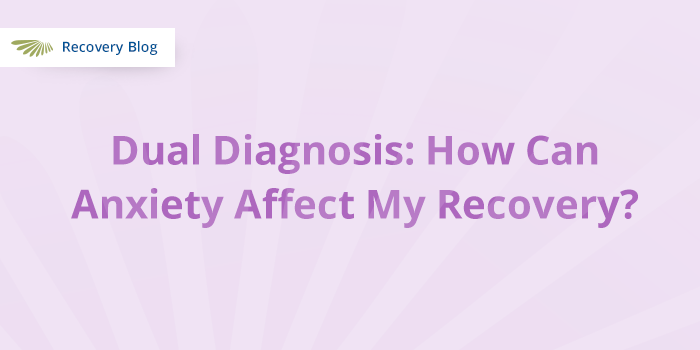10 facts you didn’t know about co-occurring disorders
In the USA, nearly 6 in 10 individuals who struggle with substance use disorder also experience...

Mental health and substance use disorders go hand in hand. At times it is difficult to separate one from another. More often than not, each condition exacerbates the other. More than 50% of those suffering from a substance abuse disorder have what is considered dual diagnosis. The term dual diagnosis is more commonly referred to as a co-occurring disorder .
There isn’t a single type of dual diagnosis. A variety of different combinations of substance use disorder and mental health disorders are possible, each with a unique set of side effects that can make a dual diagnosis difficult to understand and even more difficult to diagnose and treat.

Anxiety refers to a normal stress reaction which is beneficial in some instances. Anxiety disorders on the other hand differ from normal feelings of nervousness or stress and involve excessive, sometimes inappropriate, fear or anxiety. This is not a temporary of fleeting feeling - with an anxiety disorder, the anxiety does not go away and can worsen over time.
The anxiety can interfere with daily activities such as work, school and/or relationships. There are various types of anxiety disorders, such as generalized anxiety disorder, panic disorder, social anxiety disorder and separation anxiety disorder.
When choosing a treatment facility, it is essential to choose one that that follows an integrated care model. In doing so, you will have the opportunity to finally get to the root of your pain. According to advice from the Substance Abuse and Mental Health Services Administration (SAMHSA), with integrated treatment, practitioners can address mental and substance use disorders at the same time, potentially lowering costs and creating better outcomes.
If you suffer from anxiety and a substance use disorder, you might not understand how they interact, but you can definitely feel it. The tension, stress, worries and feeling of restlessness start to creep into your day; or maybe it hits you first thing when you wake. You try to go about your life, but all you can think of is your anxiety. It can consume you if you let it but don’t be tempted to self-medicate with alcohol or drugs.

Co-occurring anxiety can derail the best intentions for a sober life in recovery. Don’t let an untreated medical condition be what stands in the way of your sobriety. Entering a recovery program that specifically treats co-occurring disorders can give you the support and motivation you need to turn your life around. Reach out to a treatment center that treats both substance use and co-occurring disorders. You owe it to yourself and your loved ones.
If you, or someone you know, needs help for addiction or co-occurring disorders don’t hesitate to contact us. At Aquila Recovery we use an integrated treatment approach to treat both substance use disorder and the co-occurring disorders. Each disorder needs its own treatment plan and our one-on-one support and small groups help identify and treat patients in a holistic way.
In the USA, nearly 6 in 10 individuals who struggle with substance use disorder also experience...
When someone suffers from a substance use disorder and a mental health or psychiatric disorder...
For anyone struggling with substance use disorder, the stress of the holidays can be overwhelming,...